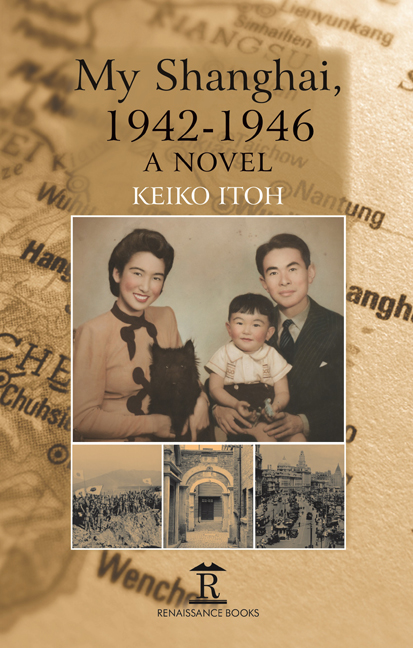Book contents
- Frontmatter
- Dedication
- Contents
- Names of Main Characters
- Brief Historical Timeline
- Japanese Honorifics
- Map of Pre-war Greater Shanghai
- PART 1 [Thursday, 15 January 1942–Friday, 31 March 1944]
- PART 2 [Monday, 3 April 1944–Thursday, 26 March 1946]
- Epilogue Tuesday, 9 April 1946, Shukugawa, Japan
- Acknowledgements
25 - Saturday, 5 January 1946
Published online by Cambridge University Press: 04 May 2022
- Frontmatter
- Dedication
- Contents
- Names of Main Characters
- Brief Historical Timeline
- Japanese Honorifics
- Map of Pre-war Greater Shanghai
- PART 1 [Thursday, 15 January 1942–Friday, 31 March 1944]
- PART 2 [Monday, 3 April 1944–Thursday, 26 March 1946]
- Epilogue Tuesday, 9 April 1946, Shukugawa, Japan
- Acknowledgements
Summary
Even in difficult times, spirits seemed to pick up at New Year, being the most important holiday in the Japanese calendar. The weather also helped – sunny bright days making strolls along the streets a pleasant pastime. But was it my sorrow, following Yumiko's death, that made me sense forced gaiety on the faces of passers-by?
Such were my thoughts as I approached Hongkew Market, when I heard someone call out to me in English: ‘Is that you Eiko? Eiko!’ Before my eyes appeared Kimmy. I instantly dropped my shopping basket, and we fell into a tight embrace.
‘Since when are you back from Nanking?’ I asked.
‘A few months now. When the war ended, we were taken to an internment camp for a few days. Horrible food eaten from cleaning buckets! Then we made the journey to Shanghai, where we were cramped into a small house, not far from our old house, with two other families. Torture, living in such a tight space! The good news is that we will be on the next repatriation boat, the Enoshima-Maru, which leaves later this month.’ It was good to hear Kimmy's perky voice.
‘Oh Eiko, I can't wait to be on the boat. Living with people who’ve lost everything isn't good for my morale. I wish I’d met you earlier, and we could have spent some time together.’
I, too, would have liked to have run into her sooner. We promised each other that we would meet again in Japan. I wonder how long it will be before it is our turn to be repatriated.
Sunday, 13 January
Not a raid, but a burglary this time, while I was at the market and Hiro had taken the boys to Sunday school. At first I noticed nothing. But when I opened the kitchen cupboards, I realized all our rice was gone.
In the bedroom, most drawers were opened, but there was no mess. All that was missing was one of Hiro's thick jumpers. Our last golden peanut was still hanging outside the window, much to my relief.
- Type
- Chapter
- Information
- My Shanghai, 1942-1946A Novel, pp. 353 - 373Publisher: Amsterdam University PressPrint publication year: 2016



